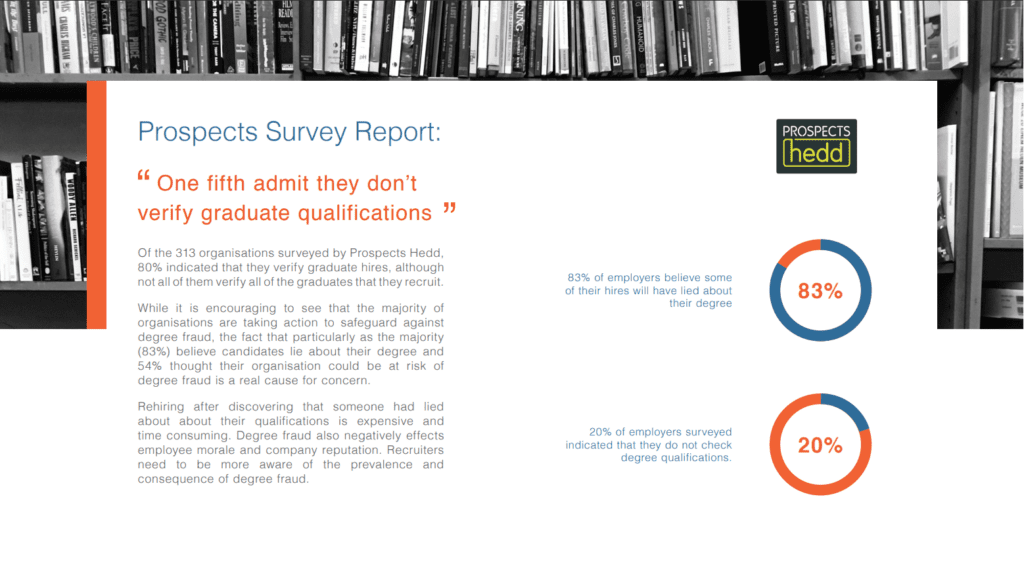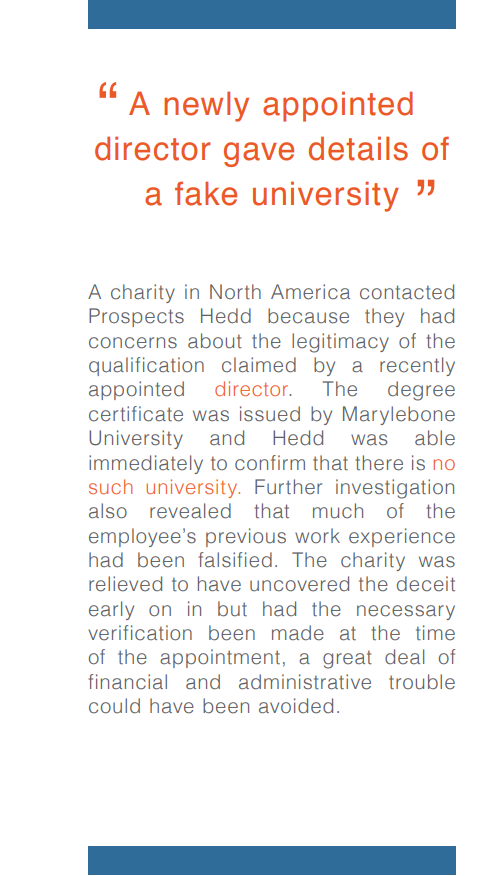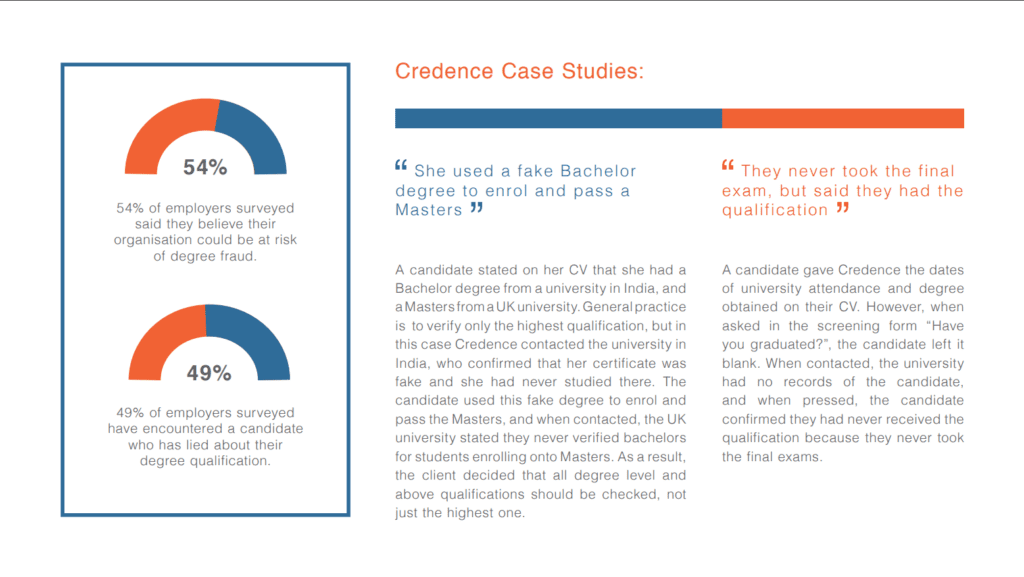The Need for Education Screening: A Case Study
As we’ve covered in the past, the level of fraud relating to degrees and education is higher than any hiring manager would like to imagine. With the government beginning to lift lockdown restrictions, we’d like to highlight the benefits for companies gearing up to reopen.

Of the 313 organisations surveyed by Prospects Hedd,
80% indicated that they verify graduate hires, although
not all of them verify all of the graduates that they recruit.
While it is encouraging to see that the majority of
organisations are taking action to safeguard against
degree fraud, the fact that particularly as the majority
(83%) believe candidates lie about their degree and
54% thought their organisation could be at risk of
degree fraud is a real cause for concern.
Rehiring after discovering that someone had lied
about about their qualifications is expensive and
time consuming. Degree fraud also negatively effects
employee morale and company reputation. Recruiters
need to be more aware of the prevalence and
consequence of degree fraud.
Top reasons employers gave for not verifying candidates’ degrees include:
Employers who felt they didn’t need to verify
degrees sometimes spoke to tutors or used
references instead. Although they may think
that this is a reliable way of protecting against
fraud, the only accurate method is to check
the candidate’s credentials against university
records.
A small number of employers appear to be
unaware of the issue, expecting or assuming
that applicants will show integrity and be
honest on their CV. Others felt they did not
need to verify the degree because they value
interview performance over qualifications.
Regardless, it is important that companies
verify degrees, as research conducted
by Axelos in 2016 shows around 100,000
jobseekers lied about their qualifications
over a three-year period. Some employers
are discouraged by the cost involved (7.8%)
and the waiting time (5.6%), but the financial
repercussions and time wasted from hiring
a dishonest and unqualified employee are
likely to be much higher and more damaging.
This is reinforced by the following credence case studies:


Case 1: “She used a fake Bachelor degree to enrol and pass a Masters”
A candidate stated on her CV that she had a
Bachelor degree from a university in India, and
a Masters from a UK university. General practice
is to verify only the highest qualification, but in
this case Credence contacted the university in
India, who confirmed that her certificate was
fake and she had never studied there. The
candidate used this fake degree to enrol and
pass the Masters, and when contacted, the UK
university stated they never verified bachelors
for students enrolling onto Masters. As a result,
the client decided that all degree level and
above qualifications should be checked, not
just the highest one.
Case 2: “They never took the final exam, but said they had the qualification”
A candidate gave Credence the dates
of university attendance and degree
obtained on their CV. However, when
asked in the screening form “Have
you graduated?”, the candidate left it
blank. When contacted, the university
had no records of the candidate,
and when pressed, the candidate
confirmed they had never received the
qualification because they never took
the final exams.
Credence has 25 years of experience combating fraud of all types. Please contact us for a free demo to show how our system can protect your organisation, or check out our services page for more information.

